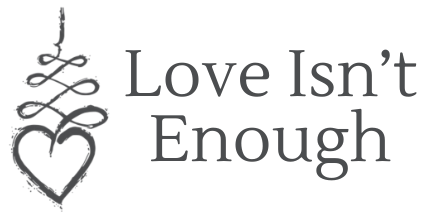By Dr. John Schinnerer and Joree Rose, LMFT. | LoveIsntEnough.net. | GuideToSelf.com | JoreeRose.com
In Part 1, we unpacked how people pleasing shows up through poor boundaries and excessive guilt. These patterns are often so deeply rooted that we don’t even recognize them—until we’re overwhelmed, disconnected, or quietly resentful.
In this part, we explore the next layers: how conflict avoidance, loneliness, and resentment feed the cycle of people pleasing—and how learning to identify your needs can lead you toward authenticity and healing.
3. Conflict Avoidance: The Fear That Keeps You Small
Many people pleasers have an instinctive fear of conflict. It’s not just about avoiding arguments—it’s about avoiding discomfort, disapproval, or feeling like a “bad” person.
But here’s the reality:conflict is a natural part of human connection. It’s not inherently negative. In fact, avoiding conflict doesn’t preserve relationships—it erodes them. When you swallow your truth to keep the peace, you’re not in a real relationship. You’re in a performance.
We often hear clients say, “I just don’t want to rock the boat.” But the truth is, the boat is already sinking—it’s just happening silently. You’re either dealing with the conflict externally, or you’re internalizing it and suffering alone.
A New Approach:
Think of conflict not as a threat, but as a bridge. It’s a way to be seen, to express your truth, and to build trust. Healthy relationships can withstand—and even grow from—honest disagreement.
4. Loneliness: The Emotional Cost of Being Who Others Want You to Be
One of the most painful ironies of people pleasing is that in trying to be liked and accepted, you often end up feeling lonely and unseen.
Why? Because when you’re constantly shape-shifting to meet others’ expectations, no one ever gets to know you. They know the version of you that’s curated, agreeable, and accommodating—not the one with real needs, boundaries, or emotions.
Over time, this creates deep emotional isolation. You may have many relationships, but few that feel truly connected or fulfilling.
The Truth:
Being your authentic self might mean disappointing some people. But it also makes space for the right people to truly see and love you for who you are—not who you pretend to be.
5. Resentment: The Emotional Buildup That Demands Your Attention
Resentment is the smoke signal that something’s burning inside you.
You may be doing all the “right” things—helping, giving, staying agreeable—but underneath, you’re simmering. That slow burn often points to unexpressed needs, crossed boundaries, and self-neglect.
And here’s what we’ve seen over and over:when resentment builds, it will come out eventually—whether through passive-aggression, explosive reactions, withdrawal, or illness.
People pleasers are often surprised by their own resentment. They say, “I did everything for them—why do I feel so bitter?” But the truth is, giving from a place of obligation, guilt, or fear is not sustainable. Real giving must come from choice, not compulsion.
A Practice:
When you notice resentment, ask:
What need of mine has gone unmet?
What boundary did I ignore or allow to be crossed?
Did I act out of alignment with my truth?
Resentment isn’t something to push down—it’s something to listen to.
6. Identifying Your Own Needs: Coming Home to Yourself
Perhaps the biggest challenge for people pleasers is this:you’ve spent so long focusing on what others need that you’ve forgotten how to ask what you need.
You might even think you don’t have needs—or that having them makes you selfish or burdensome. But the truth is, your needs matter. They are not a sign of weakness. They are a roadmap to your wholeness.
The journey of healing from people pleasing begins when you stop outsourcing your self-worth and start tuning inward. This means:
Asking yourself, “What do I need in this moment?”
Getting quiet enough to hear the answer
Honoring that need, even when it feels uncomfortable
This is the turning point. The moment you begin toreclaim your voice,trust your intuition, andchoose yourself, you shift from pleasing others to living authentically.
You Can Break the Cycle
The good news? People pleasing is a pattern—not a personality. And patterns can be unlearned.
You don’t need to become cold, selfish, or unkind. You just need to become whole. That means honoring your truth, setting boundaries with love, letting go of guilt, tolerating discomfort, and learning to meet your own needs.
It’s not easy—but it’s absolutely possible.
And it starts with this simple, powerful question:
What do I want—and what would it look like to give myself permission to want it?
Final Thoughts
If you’re ready to shift from people pleasing to self-trusting, you’re not alone. This is deep work—but it’s life-changing. Whether you’re in your 30s, 40s, or beyond, it’s never too late to come home to yourself.
We hope this two-part series has helped you start that journey.
Let’s keep the conversation going. Let’s evolve. Together.
Wanna Go Deeper Down the Rabbit Hole? Here’s Where to Find Us:
👔 For Dr. John’s work helping execs and high performers stop silently imploding:
😡 For info on Dr. John’s Ultimate Anger Management Course (which has over 20,000 graduates!), visit his High Performer Shop at https://guide-to-self.mykajabi.com/store.
💔 Curious about the couples counseling magic John’s doing with the amazing Joree Rose, LMFT
(*Spoiler: Love isn’t enough, but skills, self-awareness, and maybe a glass of wine are.*)
🎙️ For all things caveman evolution, podcast-style:
💃 For Joree’s powerhouse coaching helping women ditch burnout, find joy, and stop dating emotionally unavailable man-children:
📸 For more info on the superb counseling Joree is doing with women who are stuck in their lives, visit her site at MindfulnessAndTherapyCenter.com

Recent Comments